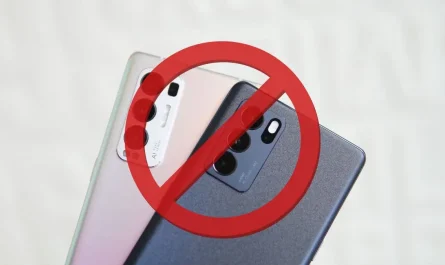8 Easy Tax Mistakes Homeowners Should Avoid
I understand that taxes are an unavoidable expense, particularly for homeowners. The worst part, though, is that the majority of the money you lose on taxes is due to straightforward errors you make along the way rather than the system.
And believe me, these mistakes can result in more than simply financial loss; they may even cause the IRS to send unsolicited letters or calls. I mean, who wants that stress?
Therefore, it pays to exercise extra caution as you prepare to submit your 2024 taxes in 2025. The largest pitfalls? claims for mortgage interest and deductions for property taxes. I’ll show you how to avoid eight typical mistakes that I’ve observed repeatedly cause homeowners to trip.
Because ultimately, being aware of these can save you a great deal of headaches, money, and time.
Mistake #1 Deducting Property Taxes for the Wrong Year
People frequently deduct property taxes for the incorrect tax year. Although it seems easy, many homeowners make mistakes with it. Property taxes are only deductible in the year in which they were paid, not the year they appear on your tax return.
Let me clarify. You may receive a 2024 tax bill in early 2025 since some local tax authorities bill a year behind schedule. However, the IRS wants to know when you or the owner of your escrow account paid those taxes, not when the bill was issued. It may lead to misunderstanding or perhaps an audit if you claim the deduction for the incorrect year.
Take the deductible for the year you paid, not the year the bill covers, as the people at House Logic put it so well. It’s a good rule to abide by.
Check your payment records again when you sit down to file your taxes. Keeping track of these details can be tiresome if you’re like me, but it’s worth it to save headaches down the road.
See our comprehensive guide on 18 property tax write-offs every homeowner should be aware of for more information on how to maximize your deductions and prevent losing out on important write-offs.
Mistake #2 Confusing Escrow Payments with Actual Property Taxes Paid
Let’s now discuss escrow accounts. If you have a mortgage, your lender may use escrow to collect money each month to pay for property taxes. The hitch, though, is that your monthly escrow payment most likely doesn’t match the amount you paid in property taxes that year.
I’ve witnessed homeowners err by subtracting the entire amount they paid into escrow rather than the real amount of property taxes. That is an issue because the figures rarely match exactly, and your lender modifies escrow payments each year to reflect your tax bill.
Examine your lender’s Form 1098 to ensure accuracy. The actual property taxes paid on your behalf will be displayed. Ask your escrow agent over the phone if you don’t have it. Only the actual amount paid to the tax authority should be deducted.
Believe me, by taking this simple step, you can prevent making a mistake that could cause the IRS to become suspicious.
Mistake #3 Incorrectly Deducting Points Paid to Refinance
Deducting points paid to refinance your mortgage is a complex topic that I would like to clarify. If you itemize, you can often deduct all of the points you pay when you purchase a property and obtain your mortgage that year.
However, refinancing is not the same.
You cannot deduct the entire amount up front if you pay points during a refinance. Rather, that deduction must be spread out across the loan’s duration. For instance, you would deduct around $133 annually if you paid $2,000 in points for a 15-year refinancing.
Although it may seem like a burden, following this guideline is essential to avoiding overclaiming and IRS issues.
Mistake #4 Misunderstanding the Home Office Deduction
I understand why the home office deduction frequently causes confusion. It can be computed using either the usual approach or the simplified method.
The streamlined way is simple: up to 300 square feet, subtract $5 every square foot. Simple, isn’t it?
The conventional approach is more intricate. You figure out real costs like utilities and repairs, but you may have to pay taxes on a portion of the deduction if you sell your house later for a profit. Additionally, it draws increased IRS inspection.
The important thing is that the area must be used consistently and solely for your business, regardless of the approach you take.
Don’t make any guesses. To ensure you receive the correct deduction without causing issue, be well-versed in the guidelines.
You may also be eligible for certain state property tax relief programs if you are 65 years of age or older. Here is a helpful tool to see whether you can save even more money:Seniors will receive state property tax relief in 2025.
Mistake #5 Failing to Repay the First-Time Homebuyer Tax Credit
Those who previously applied for the first-time homebuyer credit are primarily impacted by this.
You are expected to pay it back gradually over a period of 15 years if you used that credit in 2008. You may be required to repay the whole amount of the credit if you received it in 2009 or 2010 and sold your house or ceased using it as your primary residence within 36 months.
Although this may seem confusing, the IRS offers resources to assist you in determining your debt. Checking now is preferable to being caught off guard later.
If you’re like me, you can avoid a lot of worry later on by taking a quick glance at these rules now.
This article on first-time homebuyer tax benefits provides a concise explanation of all the tax credits that are available to you, whether you are a first-time homebuyer or not.
Mistake #6 Not Keeping Track of Home-Related Expenses
I can’t emphasize this enough: you’re putting yourself in danger if you don’t maintain accurate records. I understand that when life becomes hectic, it’s simple to lose receipts or to forget to keep track of bills for office expenses, maintenance, or house renovations.
Searching for evidence can be a nightmare when tax time arrives. The IRS expects you to provide credible documents to support your claims. You risk audits or losing deductions if you don’t have it.
My recommendation? As soon as you receive any receipts for your home or home office, make it a practice to scan or file them. Tax season can be made less stressful and more seamless with a little work throughout the year.
Additionally, many homeowners find that joining communities that exchange updates and advice on platforms like WhatsApp is a great way to get quick tax ideas and reminders throughout the year.
Mistake #7 Forgetting to Report Trackable Capital Gains on Home Sales
Although selling your house is an exciting experience, you should be mindful of the tax ramifications. If you’re married and filing jointly, you can typically deduct up to $250,000 of your profits from your taxes, which comes to $500,000. That s great, but only if you meet the IRS s ownership and use tests.
Here s the catch: if your gains exceed those limits, or you don t meet the time requirements, you have to report and pay tax on the extra amount.
For example, if you bought your home for $100,000 and sold it for $400,000, you have a $300,000 gain. If you are unmarried, you have a $50,000 tax debt.
Don t assume this is automatic or worry unnecessarily just be sure to check the details in IRS Publication 523 or consult a tax pro if you re unsure.
Mistake #8 Overclaiming the Mortgage Interest Deduction (MID)
The mortgage interest deduction is one of the biggest tax breaks for homeowners, but it comes with strict rules.
For loans taken out after December 15, 2017, you can deduct interest on up to $750,000 of mortgage debt. Older loans might have a $1 million limit. You have to know which applies to your loan.
Also, interest on home equity loans or second mortgages is deductible only if you used those funds to buy, build, or substantially improve your home. Using those loans for things like cars or student loans? That interest isn t deductible.
It s important to know these limits so you don t accidentally claim too much and end up in IRS trouble.
What s the biggest tax mistake you ve made (or avoided) as a homeowner? Drop a comment or share your story I d love to hear from you!
Final Thought: When in Doubt, Ask for Help
I ve shared a lot here, and I get it tax rules can feel overwhelming. If you find yourself unsure about any of these points, don t hesitate to reach out to a tax professional.
They can help you navigate tricky situations, make sure you get every deduction you deserve, and keep you on the right side of the IRS.
What s the biggest tax mistake you ve made (or avoided) as a homeowner? Drop a comment or share your story I d love to hear from you!
For more helpful tax tips and homeowner advice, feel free to explore our property tax write-offs guide on our websiteBuild Like New.
Disclaimer:This article provides general information and is not professional tax advice. Tax laws can change and individual situations vary, so please consult a qualified tax professional for advice tailored to your circumstances. I m here to help guide you, but your personal tax decisions should be made with expert support.
Table of Contents
-
Mistake #1 Deducting Property Taxes for the Wrong Year
-
Mistake #2 Confusing Escrow Payments with Actual Property Taxes Paid
-
Mistake #3 Incorrectly Deducting Points Paid to Refinance
-
Mistake #4 Misunderstanding the Home Office Deduction
-
Mistake #5 Failing to Repay the First-Time Homebuyer Tax Credit
-
Mistake #6 Not Keeping Track of Home-Related Expenses
-
Mistake #7 Forgetting to Report Trackable Capital Gains on Home Sales
-
Mistake #8 Overclaiming the Mortgage Interest Deduction (MID)
-
Final Thought: When in Doubt, Ask for Help




